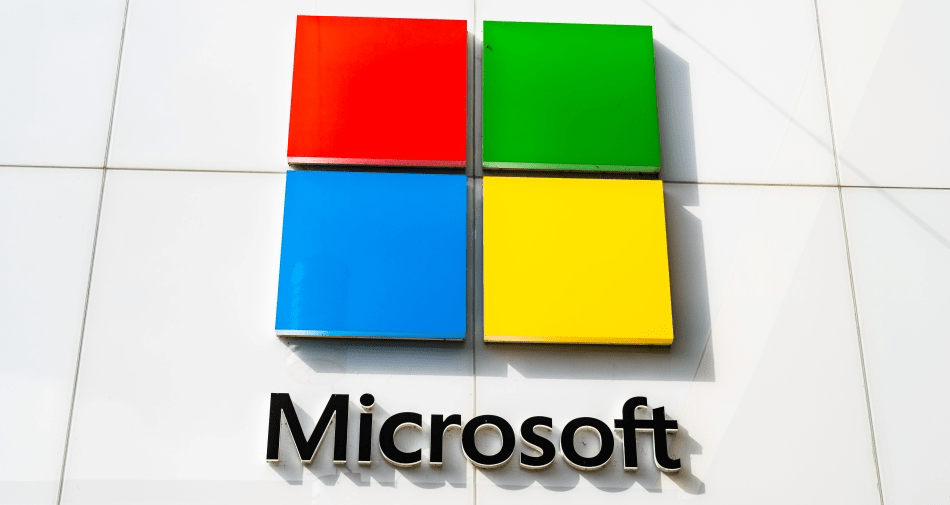CyberAlerts is shutting down on June 30th, 2025. Thank you for your support!
Example Searches:
CVE
Threat Actors
Countries
Vendors
Severity
Known Exploited

|
Description: Seven zero-days. Win32 EoP. Multiple filesystem driver attacks. MMC security feature bypass. Access (again). WSL magic email RCE. Malicious RDP server.
March 11th, 2025 (4 months ago)
|

|
🚨 Marked as known exploited on April 10th, 2025 (3 months ago).
Description: Microsoft has released its March 2025 Patch Tuesday security updates, addressing 57 vulnerabilities across its product lineup, including six zero-day flaws that were actively exploited in the wild. The update covers security issues affecting Windows, Microsoft Office, Azure, and other components. Microsoft fixes 6 zero-day vulnerabilities Among the most critical fixes in this month’s update …
The post Microsoft March 2025 ‘Patch Tuesday’ Updates Fix Six Actively Exploited Flaws appeared first on CyberInsider.
March 11th, 2025 (4 months ago)
|

|
🚨 Marked as known exploited on April 10th, 2025 (3 months ago).
Description: Apple has released iOS 18.3.2 and iPadOS 18.3.2 to fix a zero-day vulnerability that may have been exploited in highly targeted attacks. This marks the third actively exploited zero-day Apple has patched in 2025. “Apple is aware of a report that this issue may have been exploited in an extremely sophisticated attack against specific targeted …
The post Apple Patches Zero-Day Flaw Used in Targeted iPhone Attacks appeared first on CyberInsider.
March 11th, 2025 (4 months ago)
|

|
Description: DieNet Targeted the Website of Trump Winery
March 11th, 2025 (4 months ago)
|

|
Description: Microsoft Security Advisory CVE-2025-24070: .NET Elevation of Privilege Vulnerability
Executive summary
Microsoft is releasing this security advisory to provide information about a vulnerability in ASP.NET Core 9.0 , ASP.NET Core 8.0, and ASP.NET Core 2.3. This advisory also provides guidance on what developers can do to update their applications to address this vulnerability.
A vulnerability exists in ASP.NET Core applications calling RefreshSignInAsync with an improperly authenticated user parameter that could allow an attacker to sign into another user's account, resulting in Elevation of Privilege.
Announcement
Announcement for this issue can be found at https://github.com/dotnet/announcements/issues/348
Mitigation factors
Microsoft has not identified any mitigating factors for this vulnerability.
Affected software
Any ASP.NET Core 9.0 application running on ASP.NET Core 9.0.2 or earlier.
Any ASP.NET Core application running on ASP.NET Core 8.0.13 or earlier.
Any ASP.NET Core 2.x application consuming the package Microsoft.AspNetCore.Identity version 2.3.0 or earlier.
Affected Packages
The vulnerability affects any Microsoft .NET Core project if it uses any of affected packages versions listed below
Package name
Affected version
Patched version
Microsoft.AspNetCore.Identity
2.3.0
2.3.1
ASP.NET Core 9
Package name
Affected version
Patched version
Microsoft.AspNetCore.App.Runtime.linux-arm
>= 9.0.0, <= 9.0.2
9.0.3
Microsoft.AspNetCore.App.Runtime.linux-...
CVSS: HIGH (7.0) EPSS Score: 0.16%
March 11th, 2025 (4 months ago)
|

|
Description: Microsoft Security Advisory CVE-2025-24070: .NET Elevation of Privilege Vulnerability
Executive summary
Microsoft is releasing this security advisory to provide information about a vulnerability in ASP.NET Core 9.0 , ASP.NET Core 8.0, and ASP.NET Core 2.3. This advisory also provides guidance on what developers can do to update their applications to address this vulnerability.
A vulnerability exists in ASP.NET Core applications calling RefreshSignInAsync with an improperly authenticated user parameter that could allow an attacker to sign into another user's account, resulting in Elevation of Privilege.
Announcement
Announcement for this issue can be found at https://github.com/dotnet/announcements/issues/348
Mitigation factors
Microsoft has not identified any mitigating factors for this vulnerability.
Affected software
Any ASP.NET Core 9.0 application running on ASP.NET Core 9.0.2 or earlier.
Any ASP.NET Core application running on ASP.NET Core 8.0.13 or earlier.
Any ASP.NET Core 2.x application consuming the package Microsoft.AspNetCore.Identity version 2.3.0 or earlier.
Affected Packages
The vulnerability affects any Microsoft .NET Core project if it uses any of affected packages versions listed below
Package name
Affected version
Patched version
Microsoft.AspNetCore.Identity
2.3.0
2.3.1
ASP.NET Core 9
Package name
Affected version
Patched version
Microsoft.AspNetCore.App.Runtime.linux-arm
>= 9.0.0, <= 9.0.2
9.0.3
Microsoft.AspNetCore.App.Runtime.linux-...
CVSS: HIGH (7.0) EPSS Score: 0.16%
March 11th, 2025 (4 months ago)
|

|
Description: Microsoft Security Advisory CVE-2025-24070: .NET Elevation of Privilege Vulnerability
Executive summary
Microsoft is releasing this security advisory to provide information about a vulnerability in ASP.NET Core 9.0 , ASP.NET Core 8.0, and ASP.NET Core 2.3. This advisory also provides guidance on what developers can do to update their applications to address this vulnerability.
A vulnerability exists in ASP.NET Core applications calling RefreshSignInAsync with an improperly authenticated user parameter that could allow an attacker to sign into another user's account, resulting in Elevation of Privilege.
Announcement
Announcement for this issue can be found at https://github.com/dotnet/announcements/issues/348
Mitigation factors
Microsoft has not identified any mitigating factors for this vulnerability.
Affected software
Any ASP.NET Core 9.0 application running on ASP.NET Core 9.0.2 or earlier.
Any ASP.NET Core application running on ASP.NET Core 8.0.13 or earlier.
Any ASP.NET Core 2.x application consuming the package Microsoft.AspNetCore.Identity version 2.3.0 or earlier.
Affected Packages
The vulnerability affects any Microsoft .NET Core project if it uses any of affected packages versions listed below
Package name
Affected version
Patched version
Microsoft.AspNetCore.Identity
2.3.0
2.3.1
ASP.NET Core 9
Package name
Affected version
Patched version
Microsoft.AspNetCore.App.Runtime.linux-arm
>= 9.0.0, <= 9.0.2
9.0.3
Microsoft.AspNetCore.App.Runtime.linux-...
CVSS: HIGH (7.0) EPSS Score: 0.16%
March 11th, 2025 (4 months ago)
|

|
Description: Microsoft Security Advisory CVE-2025-24070: .NET Elevation of Privilege Vulnerability
Executive summary
Microsoft is releasing this security advisory to provide information about a vulnerability in ASP.NET Core 9.0 , ASP.NET Core 8.0, and ASP.NET Core 2.3. This advisory also provides guidance on what developers can do to update their applications to address this vulnerability.
A vulnerability exists in ASP.NET Core applications calling RefreshSignInAsync with an improperly authenticated user parameter that could allow an attacker to sign into another user's account, resulting in Elevation of Privilege.
Announcement
Announcement for this issue can be found at https://github.com/dotnet/announcements/issues/348
Mitigation factors
Microsoft has not identified any mitigating factors for this vulnerability.
Affected software
Any ASP.NET Core 9.0 application running on ASP.NET Core 9.0.2 or earlier.
Any ASP.NET Core application running on ASP.NET Core 8.0.13 or earlier.
Any ASP.NET Core 2.x application consuming the package Microsoft.AspNetCore.Identity version 2.3.0 or earlier.
Affected Packages
The vulnerability affects any Microsoft .NET Core project if it uses any of affected packages versions listed below
Package name
Affected version
Patched version
Microsoft.AspNetCore.Identity
2.3.0
2.3.1
ASP.NET Core 9
Package name
Affected version
Patched version
Microsoft.AspNetCore.App.Runtime.linux-arm
>= 9.0.0, <= 9.0.2
9.0.3
Microsoft.AspNetCore.App.Runtime.linux-...
CVSS: HIGH (7.0) EPSS Score: 0.16%
March 11th, 2025 (4 months ago)
|

|
Description: Microsoft Security Advisory CVE-2025-24070: .NET Elevation of Privilege Vulnerability
Executive summary
Microsoft is releasing this security advisory to provide information about a vulnerability in ASP.NET Core 9.0 , ASP.NET Core 8.0, and ASP.NET Core 2.3. This advisory also provides guidance on what developers can do to update their applications to address this vulnerability.
A vulnerability exists in ASP.NET Core applications calling RefreshSignInAsync with an improperly authenticated user parameter that could allow an attacker to sign into another user's account, resulting in Elevation of Privilege.
Announcement
Announcement for this issue can be found at https://github.com/dotnet/announcements/issues/348
Mitigation factors
Microsoft has not identified any mitigating factors for this vulnerability.
Affected software
Any ASP.NET Core 9.0 application running on ASP.NET Core 9.0.2 or earlier.
Any ASP.NET Core application running on ASP.NET Core 8.0.13 or earlier.
Any ASP.NET Core 2.x application consuming the package Microsoft.AspNetCore.Identity version 2.3.0 or earlier.
Affected Packages
The vulnerability affects any Microsoft .NET Core project if it uses any of affected packages versions listed below
Package name
Affected version
Patched version
Microsoft.AspNetCore.Identity
2.3.0
2.3.1
ASP.NET Core 9
Package name
Affected version
Patched version
Microsoft.AspNetCore.App.Runtime.linux-arm
>= 9.0.0, <= 9.0.2
9.0.3
Microsoft.AspNetCore.App.Runtime.linux-...
CVSS: HIGH (7.0) EPSS Score: 0.16%
March 11th, 2025 (4 months ago)
|

|
Description: Microsoft Security Advisory CVE-2025-24070: .NET Elevation of Privilege Vulnerability
Executive summary
Microsoft is releasing this security advisory to provide information about a vulnerability in ASP.NET Core 9.0 , ASP.NET Core 8.0, and ASP.NET Core 2.3. This advisory also provides guidance on what developers can do to update their applications to address this vulnerability.
A vulnerability exists in ASP.NET Core applications calling RefreshSignInAsync with an improperly authenticated user parameter that could allow an attacker to sign into another user's account, resulting in Elevation of Privilege.
Announcement
Announcement for this issue can be found at https://github.com/dotnet/announcements/issues/348
Mitigation factors
Microsoft has not identified any mitigating factors for this vulnerability.
Affected software
Any ASP.NET Core 9.0 application running on ASP.NET Core 9.0.2 or earlier.
Any ASP.NET Core application running on ASP.NET Core 8.0.13 or earlier.
Any ASP.NET Core 2.x application consuming the package Microsoft.AspNetCore.Identity version 2.3.0 or earlier.
Affected Packages
The vulnerability affects any Microsoft .NET Core project if it uses any of affected packages versions listed below
Package name
Affected version
Patched version
Microsoft.AspNetCore.Identity
2.3.0
2.3.1
ASP.NET Core 9
Package name
Affected version
Patched version
Microsoft.AspNetCore.App.Runtime.linux-arm
>= 9.0.0, <= 9.0.2
9.0.3
Microsoft.AspNetCore.App.Runtime.linux-...
CVSS: HIGH (7.0) EPSS Score: 0.16%
March 11th, 2025 (4 months ago)
|
